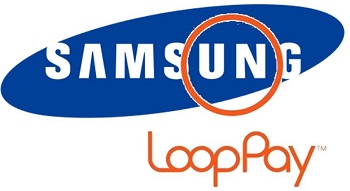Samsung has confirmed that it will be acquiring LoopPay
Samsung has announced that it will, indeed, be acquiring mobile payments technology firm LoopPay. Rumors concerning this acquisition have been circulating for some time, bolsters by Samsung’s growing interest in mobile payments. The acquisition is expected to help Samsung better compete in the mobile commerce space, which has become filled with companies that are seeking to gain the favor of mobile consumers throughout the world. The acquisition may also hint at Samsung’s future efforts in the mobile commerce space.
Firm develops technology that can turn conventional point-of-sale systems into mobile payments terminals
LoopPay develops technology that is capable of giving 90% of conventional point-of-sale systems the ability to accept mobile payments. This technology has become quite valuable, as more retailers are looking to accept mobile transactions in their physical stores. Many of Samsung’s most recent devices are able to conduct mobile transactions, but relatively few retailers support these payments physically. That is changing as mobile commerce continues to prove that it is a powerful force, pressuring more retailers to embrace mobile point-of-sale systems.
Samsung may be developing its own mobile payments system in order to compete with other companies
 Samsung is rumored to be developing its own mobile payments platform, called Samsung Pay. This platform is likely to be based off technology developed by LoopPay. This technology would be used by retail partners in order to accept mobile payments through the new service. Samsung has not yet revealed details concerning this potential platform or whether or not it will be working with retailers to launch a new mobile payments service.
Samsung is rumored to be developing its own mobile payments platform, called Samsung Pay. This platform is likely to be based off technology developed by LoopPay. This technology would be used by retail partners in order to accept mobile payments through the new service. Samsung has not yet revealed details concerning this potential platform or whether or not it will be working with retailers to launch a new mobile payments service.
Competition may be difficult, as other companies have a well established place in the mobile commerce field
Samsung has been relatively slow to enter into the mobile commerce field on its own. The company is currently set to compete with others, such as Apple and Google, in order to gain the favor of mobile consumers. Competition is likely to be fierce, as both Apple and Google already have a well established presence in the mobile payments space.
This will be combined with the use of robotics as well as big data in the future of this industry.
According to the results of recent research that has now been published, 36 percent of companies within the manufacturing industry expect mobile technology and apps to play an important role in improving their financial performance both today and into the future.
Moreover, 47 percent of those companies think that big data analytics will be a defining factor in their future.
Another 49 percent said that they felt that advanced analytics would be an important part of the reduction of the cost of operations and to be able to most efficiently use their assets. This was the result of the SCM World report that was entitled “The Digital Factory: Game-Changing Technologies That Will Transform Manufacturing Industry.” It was a collaborative effort between that organization and MESA International that provided data based on a survey that was conducted to better understand the impact of various types of manufacturing tech, including mobile technology, data, and analysis tools in terms of timeline and investment priority.
Online surveys were completed online in order to express opinions regarding mobile technology, big data, and more.
 Participants were MESA International and SCM World corporate members. The respondents were excluded from the analysis when they were collected from the software and professional services sectors.
Participants were MESA International and SCM World corporate members. The respondents were excluded from the analysis when they were collected from the software and professional services sectors.
The participants were made up of 22 percent manufacturing and production, 21 percent IT technology, 14 percent operations and engineering, and 8 percent general management. Geographically, 40 percent of the respondents were from Europe, the Middle East, and Africa, 38 percent were from North and South America, and 22 percent were from Asia and Australia.
The three most disruptive forms of tech that manufacturers currently see in to the industry were mobile technology and applications (75 percent), big data analytics (68 percent), and advanced robotics (64 percent). SCM World specifically pointed out that mobile tech and apps were seeing notable and growing adoption across the plant floor. It pointed out that this trend was having a considerable impact on the measure, control, and supervision of manufacturing operations.
 Samsung is rumored to be developing its own mobile payments platform, called Samsung Pay. This platform is likely to be based off technology developed by LoopPay. This technology would be used by retail partners in order to accept mobile payments through the new service. Samsung has not yet revealed details concerning this potential platform or whether or not it will be working with retailers to launch a new mobile payments service.
Samsung is rumored to be developing its own mobile payments platform, called Samsung Pay. This platform is likely to be based off technology developed by LoopPay. This technology would be used by retail partners in order to accept mobile payments through the new service. Samsung has not yet revealed details concerning this potential platform or whether or not it will be working with retailers to launch a new mobile payments service.
 Participants were MESA International and SCM World corporate members. The respondents were excluded from the analysis when they were collected from the software and professional services sectors.
Participants were MESA International and SCM World corporate members. The respondents were excluded from the analysis when they were collected from the software and professional services sectors.